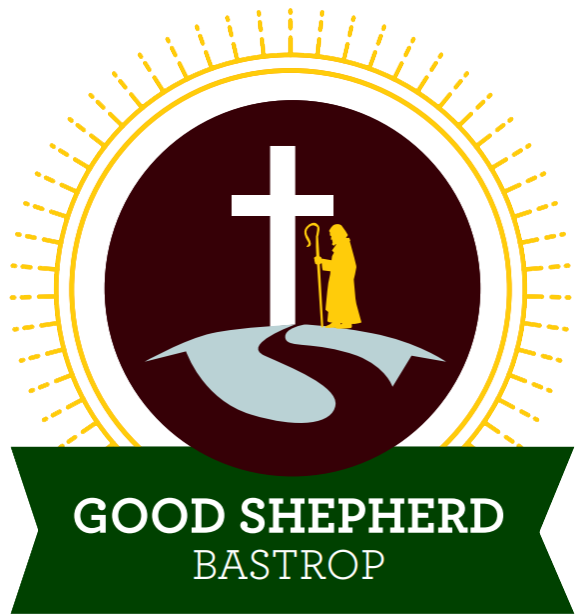Tests for reflection:
Gen 12:1-4a
Ps 121
Rm 4:1-5, 13-17
Jn 3:1-17
Trap 1:
Be aware of Manichaeism in Romans and John. Manichaeism presumes there is a source of evil in the world, that evil resides in matter. St. Augustine says that this presumption is incompatible with a God who created all that exists, which the first article of the Creed proclaims. Instead, Augustine says that evil is a relationship: when matter falls away from God. Another way of saying this is that evil is an away-from-God orientation of consciousness. This “fallen” consciousness results in evil actions, but the matter itself is not evil.
In Romans, Paul seems to be drawing a clear distinction between the Law and the Gospel, and there IS a clear distinction. However, we would be falling into the trap of Manichaeism if we thought that “because we are Christians we are by definition living by faith; and therefore Jews are by definition living by Law.” This would be a mistake because clearly there are Christians who fall into a legalistic faith, all Christians at times slip into legalism, and Abraham himself was—as Paul says—made righteous by faith, not adherence to Torah. Abraham was not Christian. Manichaeism would say that Jews are evil and Christians are good. The life of faith—thanks be to God—is not that simple.
Likewise in John, we can fall into the Manichaean trap of thinking that “those who are not born of the Spirit are evil, and those who are born of the Spirit are good.” Instead, John is simply saying that we will not see, taste, touch, feel, or experience the kingdom of God unless and until we are born again of the Spirit and water. This birth is—for Christians—continual. We need to die and be reborn daily; this is the daily practice of baptism, the pattern of repentance and forgiveness that shapes the Christian journey of faith.
Trap 2:
We can also be aware of the tendency for confirmation bias, especially in a very popular, well-known text, like Jn 3:16. Reading from a different translation or in a different language can be ways of getting a fresh perspective on an old favorite. Likewise, listening to a neighbor through Dwelling in the Word can bring new perspectives and guard against confirmation bias.
Trap 3:
We can be aware of idolatry of the word in the Genesis text: “I will curse those who curse you” (Gen 12:3). We might conclude that all who are not Christian or Jewish or fill-in-the-blank deserve God’s curse, and that it is our job to let them know! We might even hold so fast to this conclusion that we forget to remember the Living Word, who is Jesus, who is grace, life, and the reconciliation of the world (2 Cor. 5:19). We steer clear of idolatry of the word by remembering the Living Word in all texts, even the harsh ones. For example, Gen 12:3 concludes by saying, “All the communities of the earth shall find blessing in you.” These are words of promise from the God of grace who is already working to restore all things together in Christ (2 Cor. 5:19).
Two:
A traditional catechism has at least three parts:
-
Ten Commandments
-
Apostles’ Creed
-
Lord’s Prayer
Luther goes on to teach also about Baptism, the Eucharist, Confession and Forgiveness, and Daily Prayer, but the theological framework of a catechism centers around those three aspects of Scripture and tradition. I want to focus this lesson on the opening two verses of Psalm 121: “I lift up my eyes to the hills—from where will my help come? My help comes from the Lord, who made heaven and earth.” This short call and response speaks beautifully to the grace of the first two Commandments: God is one; have no other gods. The psalmist also implicitly proclaims the words of the Lord’s Prayer: “Your kingdom come, your will be done, on earth as it is in heaven.” In order for this to happen, our kingdom and our will must first go. In all of these cases, the disciple refuses to settle for substitutions for God in the journey of faith.
But refusing substitutions for God is difficult. What are your substitutions—your hills? For the psalmist, the “hills” were places where literal idols were worshiped. She concluded: “No, my help comes from the Lord, who made heaven and earth.” The psalmist’s God might not have seemed quite as accessible as the gods whose altars were on the nearby hills, but the God who makes heaven and earth is the one who can provide true help. Life is like this. As long as we search away from God, our true help will not come. When we turn to God, our true help arrives, for God made heaven and earth, and therefore, God is in all things, always with us.
Some common “hills” for ourselves are money, sex, drugs, gambling, television, or any other form of anesthesia. If we want to explore even deeper into the temptation toward idolatry we may confess that sometimes our “hills” are our party identities, our national identities, or even our religious identities. But no identity of ours encapsulates the mysterious, life-giving identity of Christ living in us. When we refuse the various “hills” at work in the world we are saying “yes” to the death of our small selves. We become willing to settle for nothing less than an encounter with God at work in this present moment, in this breath, in this community, in this soil.
Surrender:
Our willingness to die is at the heart of our spiritual lives; the first of the 95 theses is that our entire lives are to be lives of repentance. And, of course, repentance is returning again and again to God, dying to our small self.
One of the biggest “hills” we have collectively in our world right now is the illusion that perpetuating the fossil fuel industry will bring economic security. Our entire global economy is dependent on fossil fuels, and yet we know beyond the shadow of a doubt that this dependence is stealing life from current and future generations, both human and other-than-human alike. To put our trust in the God who made heaven and earth in this context means being willing to refuse the easy access “hill” of continuing on with business as usual.
For decades there has been pressure to open the Arctic National Wildlife Refuge up for oil and gas drilling. And recently the presidential administration has taken steps to move definitively in that direction. Not only is this move disastrous for species who rely on that habitat for their very life, but it exaggerates our problems by further entrenching this damaging, destructive industry. To drill in the Arctic is to seek refuge in the nearby hills. But as the psalmist proclaims, that is not from whence our true help comes. Our help comes from the Lord, who made heaven and earth. All other sanctuaries are illusions.
Our global economy will be disrupted as we shift away from dependence on fossil fuels, guaranteed. There is only false, deceptive security in perpetuating the fossil fuel industry, just as seeking salvation in the hills for the psalmist is a false salvation. We have a decision to make about how we choose to move forward together. Will we be proactive in shifting the global economy together, refusing the “hill” of short-term security? Or will we be reactive when the ground itself shifts beneath our feet, running higher and higher into the hills, clinging to a false security that will never be our true help? Let us resound with the psalmist: our help comes from the Lord, who made heaven and earth.
